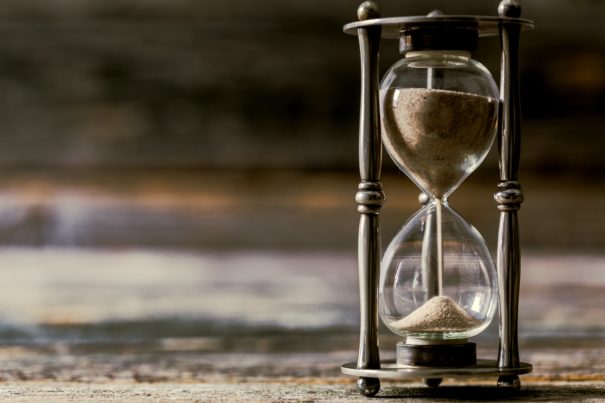Things Now, or Time Later

I don’t own a car anymore, and so I’ve been riding a 12-year old bike. It takes a lot for me to buy anything.
Like I’m writing this on a two-year-old laptop, which replaced a laptop that was six years old, which replaced a laptop that was six years old.
I’ve been wearing the clothes in my closet until they’re worn out, and then not replacing them. I’m down to just a few pieces of clothing.
It’s not about living like a monk, or being “cheap”, it’s about waste.
What everyone forgets is that you don’t buy things with money, you buy them with hours of your time. To say that another way, whenever you waste money you’re wasting your time.
So, I don’t enjoy buying things, because I place a huge value on time. When I do buy things, I’m going to extract their usefulness, to extend their lifespan. Keeping things forever stretches what your time is worth.
Ironically, when you start valuing your time the byproduct is more time. (You can prove this by saying “no” to people more often.)
And when you’re not spending money on meaningless things you have money to invest, and that invested money can be used to buy back time.
It sounds like a radical idea until you realize Stoics were saying all this like 2,000 years ago.
The most challenging aspect of valuing your time is the mindset shift, because it feels like you’re depriving yourself. When you stop buying unnecessary things you start wondering when you can buy unnecessary things again. If you have to wait to buy anything until you’re 60 years old what’s the point?
This reminds me of Homer Simpson buying an SUV:
Canyonero salesmen: “Okay, here’s how your lease breaks down. This is your down payment, then here’s your monthly, annnnnnnnnd there’s your weekly.”
Homer: “And that’s it, right?”
Canyonero salesmen: “Yup…oh, then after your final monthly payment there’s the routine CBP, or Crippling Balloon Payment.”
Homer: “But that’s not for a while, right?”
Canyonero salesmen: “Right!”
Homer: “Sweet!”
People who are good with money are good with money because they understand what economists call opportunity cost. They know when they spend $100 on one thing they’re losing $100 that could’ve been used some other way.
Yeah, sometimes you decide it’s worth it to buy the outrageously expensive headphones or take the family to Disney World for a week, but the point is you’re always thinking about opportunity cost. You’re scanning your options and deciding the best use for your hard-earned money.
And if you decide to invest that $100 instead of spend it, it will be worth more than $100 in the future. Plus, every $100 you permanently cut from your monthly spending reduces how much you need to retire by $30,000. The money grows while needs shrink.
So if investing is how you buy back your time, why aren’t more people living the good life? The problem is we’re terrible at making long-term tradeoffs.
Like Homer, if you hand over $50,000 for an SUV it will be parked in your garage tonight. It’s a concrete transaction. But what exactly are you getting if you invest $50,000? It’s pretty fuzzy.
Maybe the trick is thinking about money from the perspective of your future self, and you can do that by talking to future selves. You go talk to people who are in their 60s.
I’ve done this, and no one’s ever told me, “Gee, I wish I hadn’t saved so much!”
Instead, they wish they would’ve done things differently. They spent a lifetime working hard, but got distracted by superficial things. It was a waste. Not of money, of time.
